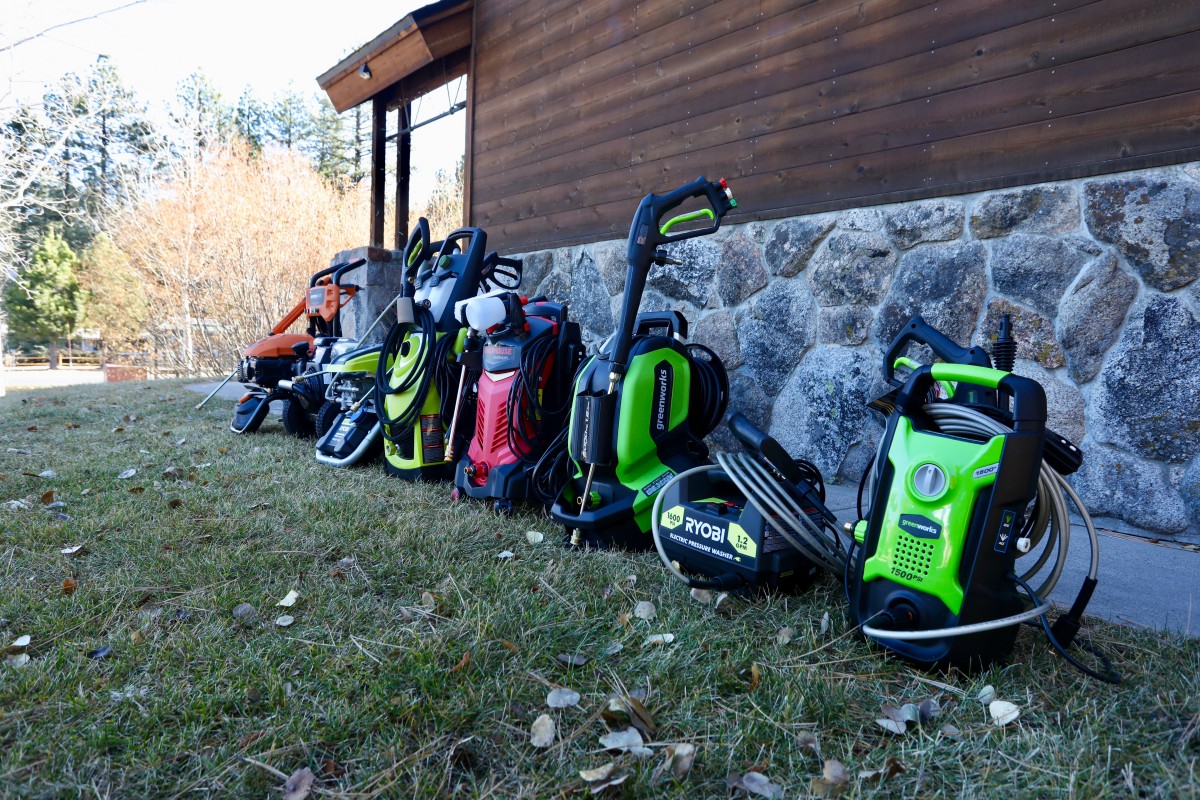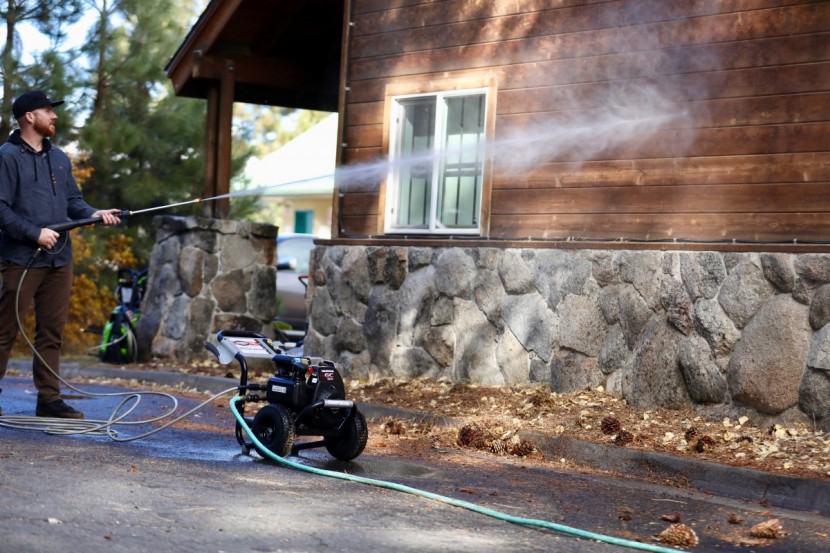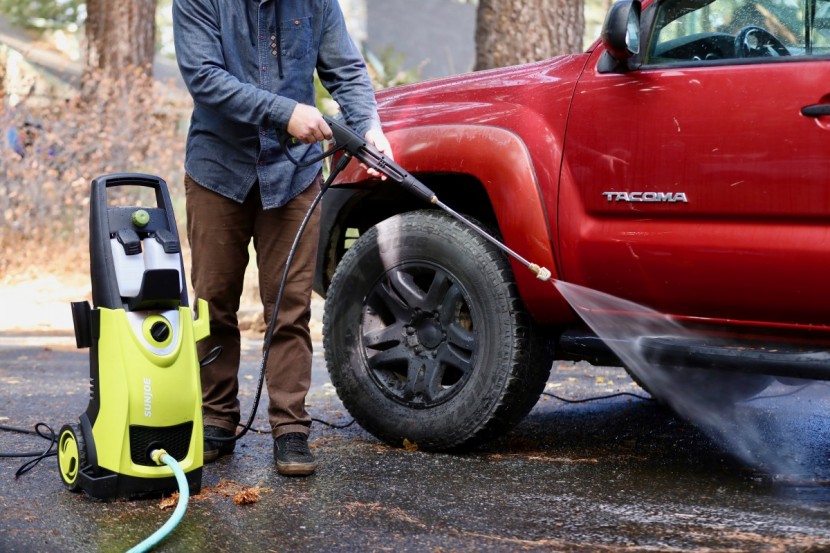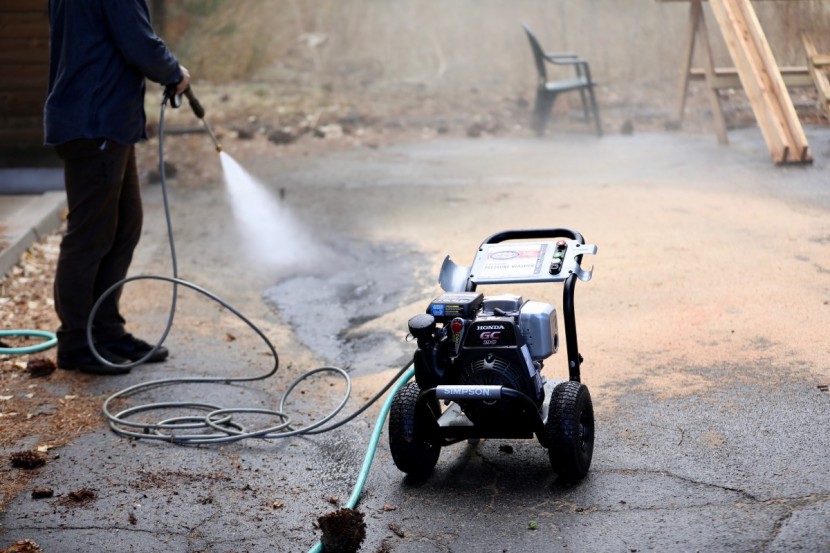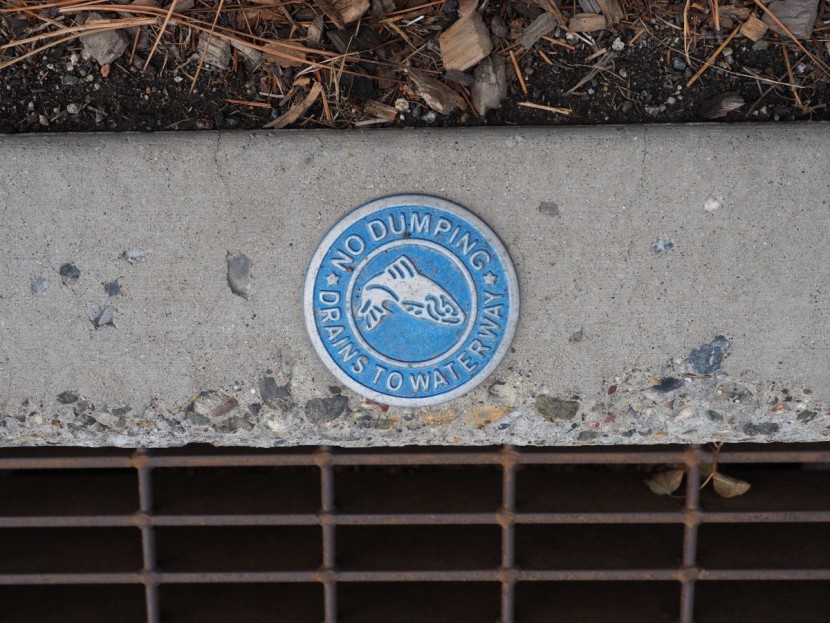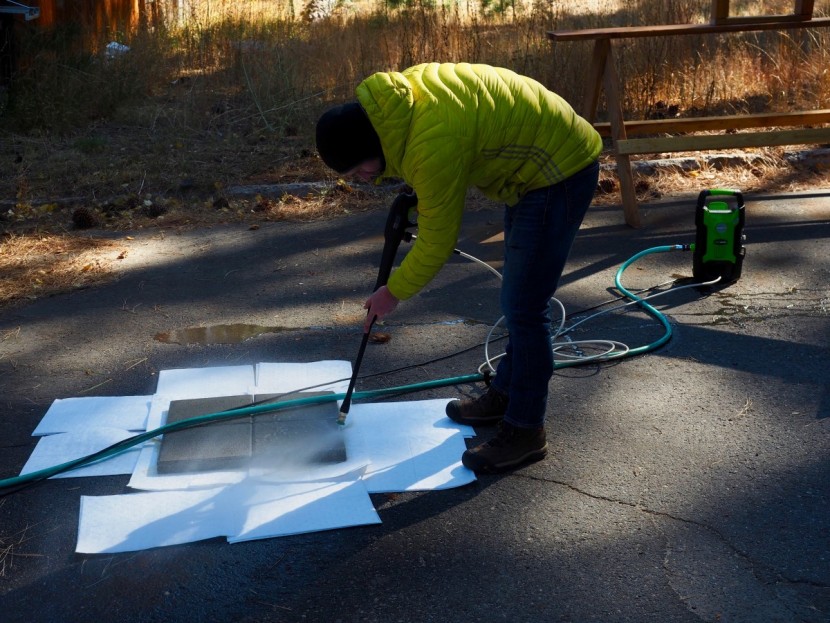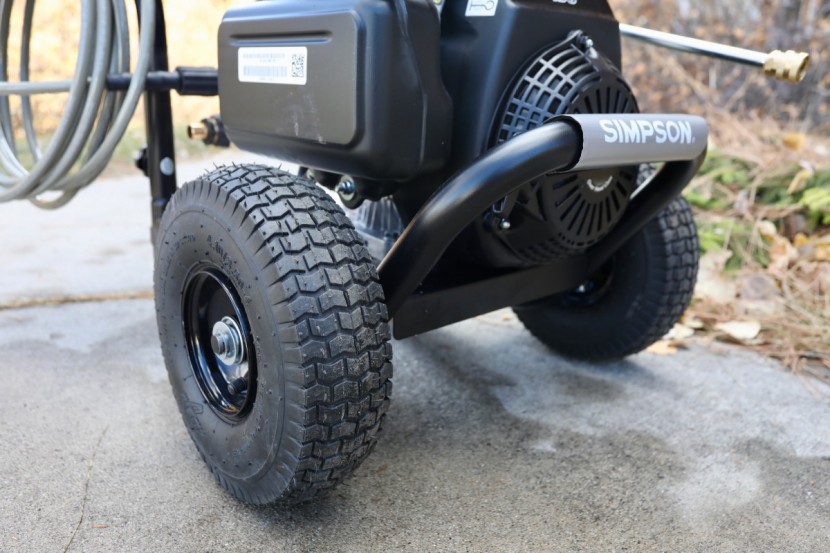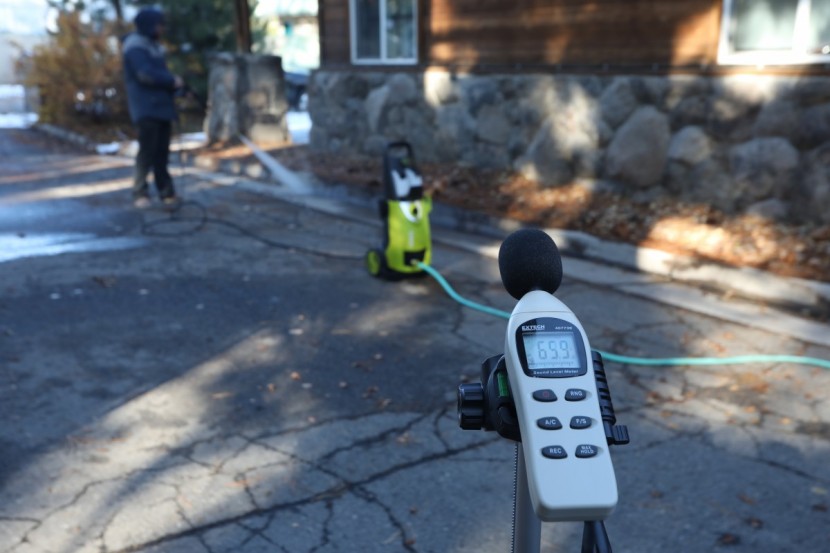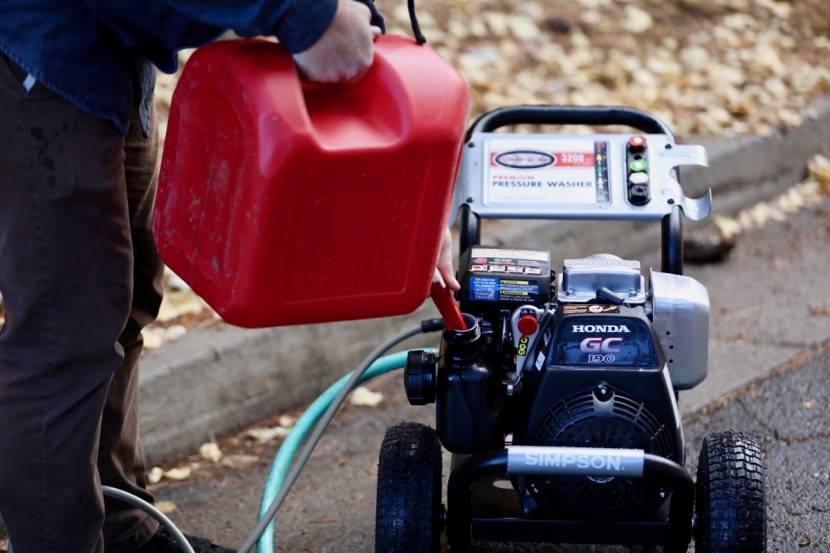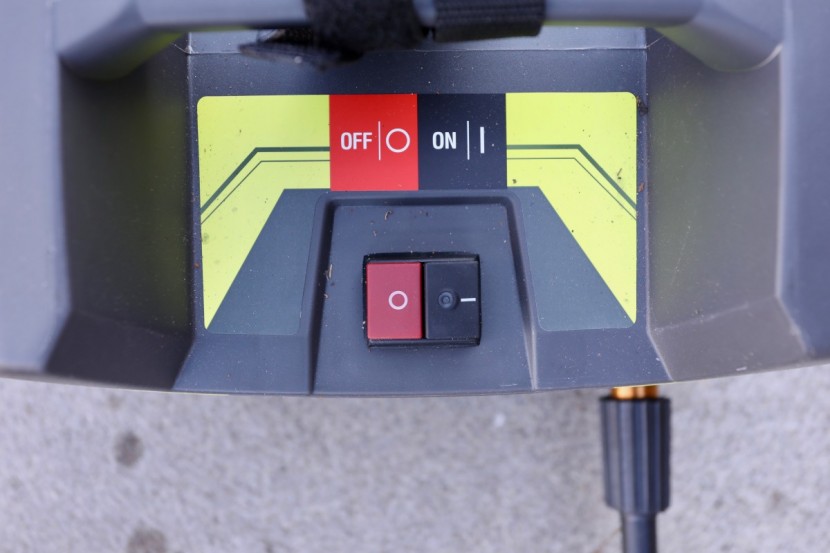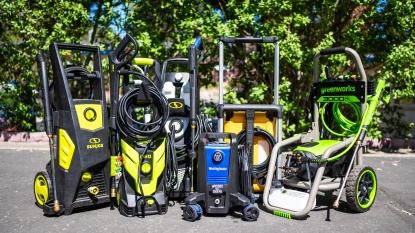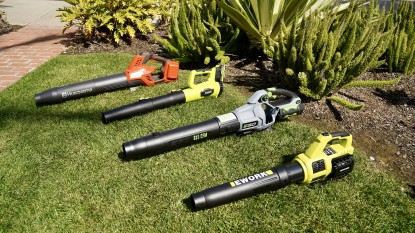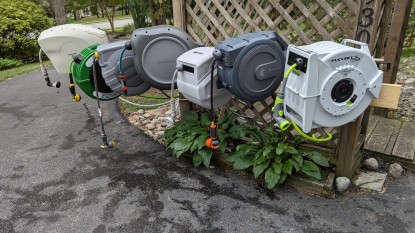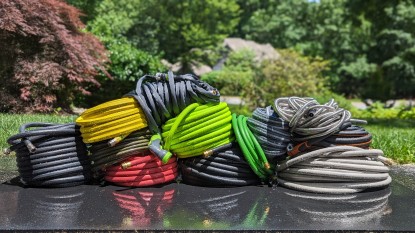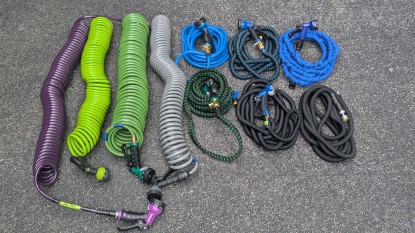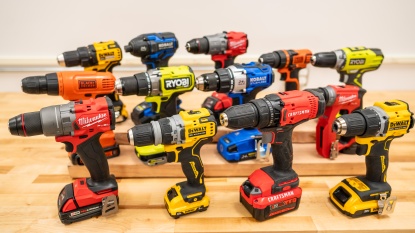If you're in need of some guidance while navigating the confusing world of online pressure washer sales, we've got you covered. Buying a power tool such as this can become a confusing and daunting process. You don't want to waste money on a product that won't get the job done, but at the same time, it doesn't make sense to break the bank for a tool that's overkill for the task at hand. Continue reading below for our extensive buying guide or browse our comprehensive review of the top-ranked pressure washers to see which ones passed the GearLab tests.
What is it?
A pressure washer is a machine that takes a given flow of water and accelerates it with a mechanical pump. On the exit side of the pump, the diameter of the hose is reduced, and then the wand and nozzle reduce it even further. All of this positive change of water velocity coupled with pathway reduction works to take a basic garden hose flow and turn it into a stream or spray at an increased pressure. Water, the universal solvent, is perfect for cleaning — even more so when it's mixed with soap.
Their duties
These devices are used for a massive array of tasks and jobs. Generally, their job is defined within the title of the machine — they are used to wash things. Some models are used for something as simple as misting the dust or mud off your mountain bike after a good day on the trail, while heavy-duty industrial models can peel the paint off of metal. They are used for just about any task requiring a high-pressure stream of water in between the aforementioned examples. Consumers use them for cleaning cars, toys, RVs, driveways, and patios while professionals use them to prepare houses for exterior paint, clean gutters, or clean various pieces of machinery for assembly. These tools truly do have thousands of uses.
Do you really need one?
Before you purchase a pressure washer, it is essential to consider whether or not it would be the right tool for the job. In many cases, the restriction of flow from a simple garden hose nozzle hand sprayer might provide plenty of pressure to suit your cleaning needs. If you live in an area where you have a large amount of dust, mud, snow, salt, or algal growth then household garden hose pressure might not get the grime off your property and belongings. If you're a DIYer and you've got a specific home improvement project lined up, these are a great tool to either prepare for or clean up after the job. Remember — a lot of tool rental companies carry pressure washers so if your project is more of a one-time deal you can just pick one up for a few hours or a day.
You might be thinking about buying a pressure washer to clean your vehicles at home — there are some crucial things to consider before you do so. First of all, the wands, nozzles, and soaps at car washes are designed to be used on car paint, many consumer models don't possess these attributes. If you aren't careful with the model you purchase as well as the settings or nozzles, even on models that have car wash settings and attachments, you could do some costly damage to your vehicle in an instant. There are environmental implications for washing your own vehicles as well. Car washes capture their wastewater and remove any oil, soot, gasoline, or other chemicals that may accrue in the tanks, then they dispose of it properly. They often clean and recycle their water as well. Residential storm drains often run to rivers, streams, lakes, and the ocean — they are almost never directed to a treatment plant. When you wash your vehicle in your driveway not only are you using a ton of water, you might be contributing to the damage of aquatic ecosystems or causing harm to wildlife.
In some places, it is illegal to wash your car in residential zones so you need to check with your local government to ensure you don't end up with some hefty fines for environmental code violations. Before buying one to wash your car, consider how much money you spend at the car wash, how often you wash your car, the time involved, and compare it to the price of a pressure washer. In some cases, it may be less trouble, more cost-effective, and more eco-friendly to frequent your local car wash than to buy a pressure washer and do it yourself.
Choosing the right model
Step 1: Decide the application
Deciding which pressure washer is the right one for you comes down to the applications for which it will be used. If you're going to be using your washer on vehicles, then you don't need a version that produces a ton of pressure. Depending on the material that your house, patio, or fence is made out of, that goes for many property cleanup tasks as well — too much pressure can permanently damage many types of wood and other building materials on the softer side. However, if you're looking to clean concrete, asphalt, brick, or tile then more pressure might be your friend. If you need a pressure washer that does it all, you're going to want to go with a model that has a multitude of settings and nozzles so you're able to dial it down for small tasks and crank it up for the big ones.
Step 2: Consider Size
The next thing to contemplate is the size and weight of the unit. There are models that are light compact enough to be stored on a shelf or tossed in the trunk of a small car. Some of the beefier models are going to take up a chunk of square footage for storage, and you aren't going to be able to move them off property without a friend to lift them into or out of a truck.
Step 3: Where Will You be Using Your Pressure Washer?
Another detail to factor into your decision is how easily they can be moved around on the ground and what type of terrain you'll be on. Certain versions have large tires, others have plastic wheels, a few come with small casters, and the smallest ones don't have any wheels at all. In some instances, a heavier model with burly tires will be easier on your back than wrestling a medium-sized washer with smaller wheels or carrying one of the lightest models that lack a way to scoot around altogether.
Step 4: Do Noise Levels Matter?
The noise that each unit emits is important to consider as well. If you're ok with some added sound level to gain added power then this might not matter to you, but be warned — the louder models are nearly insufferable.
Gas vs. Electric
Now that you've decided that you do want a pressure washer, you know what you're going to use it for, and you've narrowed down your technical specifications it's time to make the big decision — gas versus electric.
Gasoline
The pressure washers that offer the highest PSI output are gas-powered. Having an internal combustion engine has its advantages. First of all, an engine is its own power station. Depending on the size of the engine, there are gas-powered pressure washers that can handle cleaning jobs that would be difficult or impossible by hand. They are generally bigger, heavier, louder, and stronger than their electric cousins, but they offer the freedom from extension cords and a power source.
Electric
Electric pressure washers are a bit more diverse than gas-powered models. They are offered in various shapes, sizes, and different amounts of power output. There are many superiorities that electric models offer when compared to gasoline versions. A fantastic advantage that electric has over gas is the reduction in noise. All of the electric models that we tested are substantially quieter than gas-powered ones, and many models are silent as long as the trigger is not depressed. This can be quite the relief on your ears and you're less likely to bother neighbors while completing a project. One thing we love about going electric is the lack of a need for any fossil fuels. Dealing with gas cans, oil, choke levers, and pull cords is nowhere near as convenient as just pushing a button or flipping a switch, and with a power outlet, you'll have unlimited runtime. Coupled with the lack of fossil fuels is the lack of emissions. The gas-powered versions are smoky and smelly, and they must only be used in a well-ventilated area outside — electric pressure washers can be used inside at job sites or buildings with floor drains. Certain electric models are extra light and compact, so if you're looking for a pressure washer that isn't going to take up a ton of space or be a pain to move around, electric is the way to go.
Within the electric category exists two subcategories — corded and cordless. The cordless models are niche products for anyone who is in a situation where they have water but no power, which isn't terribly common. The battery-powered pressure washers that manufacturers have released to date either don't compare to corded or gas-powered models as far as performance or they have availability limited to certain countries.
Conclusion
Our goal is to help you decide which pressure washer is the right one for you, and we hope that we've accomplished just that. For a comprehensive run-through of the products that we tested and the results we found, check out the full review of our favorite pressure washers.

